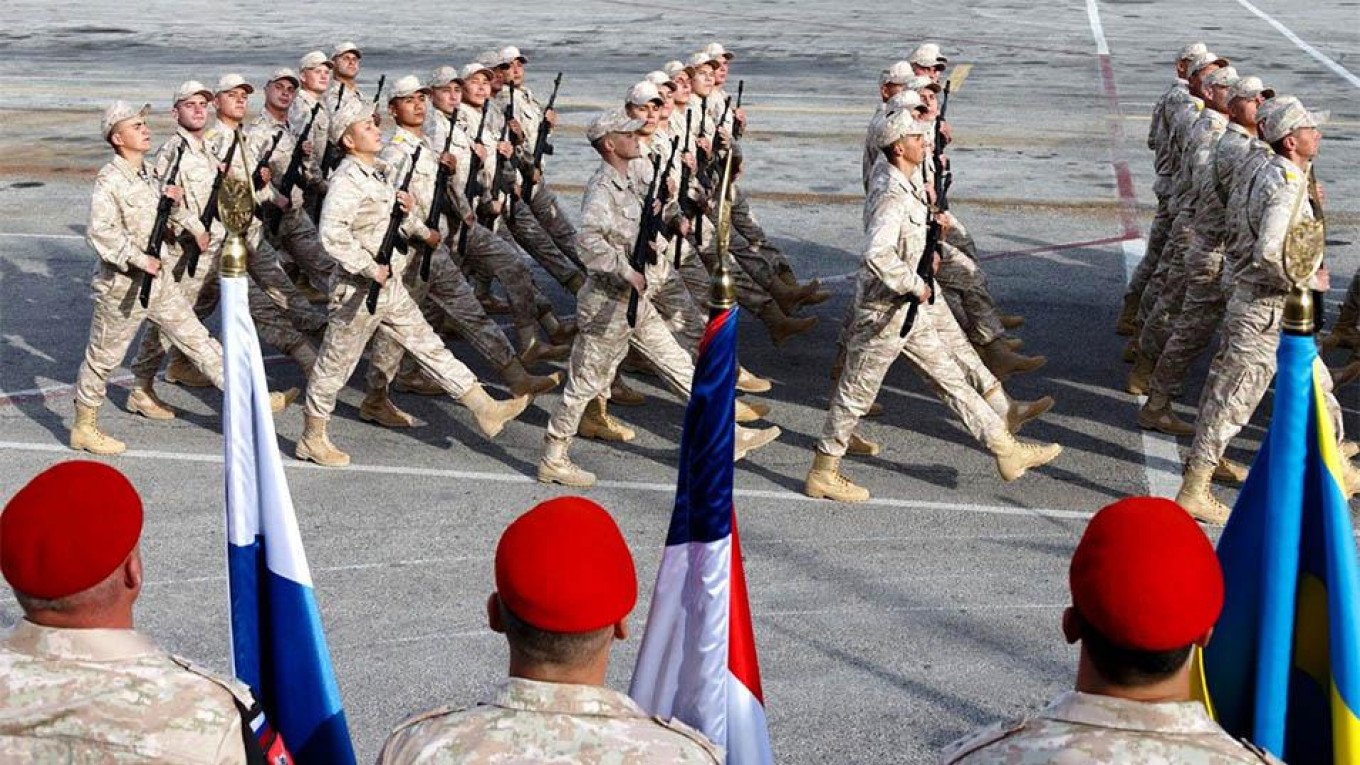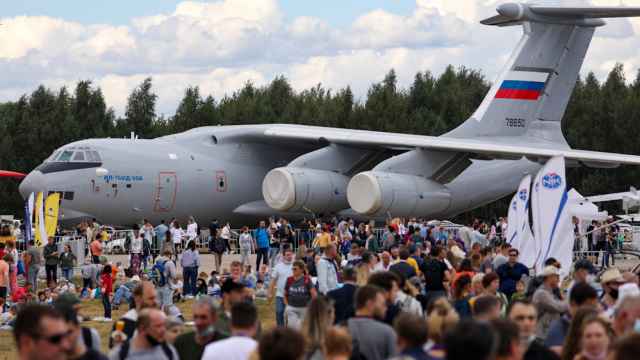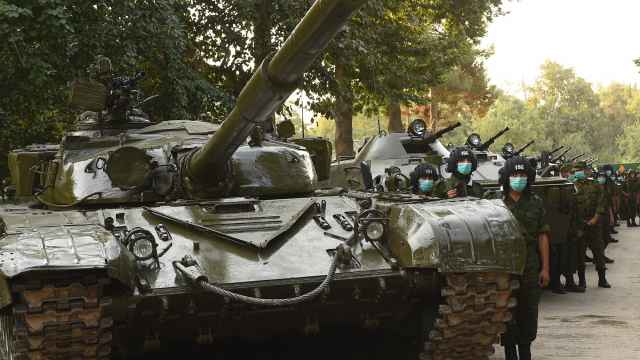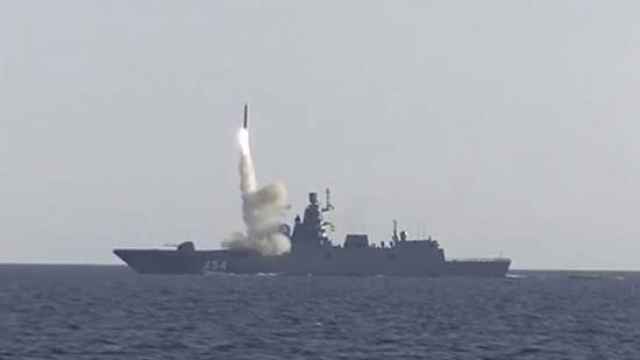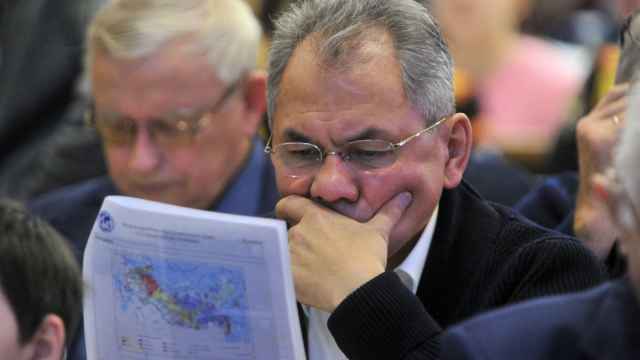In December 2017, Vladimir Putin triumphantly declared Russia’s victory in Syria. Addressing troops during a surprise visit to the Khmeimim airbase, he also announced a partial withdrawal of forces. “The homeland is waiting for you, friends. Godspeed!” he said.
Although Russia’s intervention on the side of Bashar Assad did meet with marked success, Putin’s declaration was little more than political theater timed for the upcoming presidential campaign in March — Russia has already announced troop reductions in Syria three times.
Not only is the military actually unlikely to withdraw from Syria, it will probably continue operations there. The Kremlin next year will also continue to fuel its other major conflict, Ukraine, by supporting proxy forces in breakaway republics in the country’s east.
But even as Russia’s global conflicts look set to roll into 2018 unhindered, its Armed Forces are at a crossroads. Divergent spending priorities, resource constraints and myriad dilemmas loom over the horizon.
Russia’s Aerospace Forces have shown dramatic progress compared to their performance in the 2008 Russia-Georgia war. Military reforms launched that same year and a large modernization program in 2011 have left their mark.
They also, however, displayed their limitations. Lacking precision-guided munitions, targeting pods to make good use of them and smaller munitions, the Russian air wing’s combat performance is still arcane compared to its Western counterparts. It is effective, but brutish.
Cognizant of these limitations, Russia is now pursuing a new arsenal for non-contact warfare, one based on long-range precision weapons and other guided munitions. But moving forward will be no easy feat in the face of its confrontation with the United States.
Western sanctions, which now seem destined to stay in place for many years, are hampering Russia’s access to key technologies. Sanctions have also made the international cooperation necessary for these technological developments more difficult.
What’s more, Russia is having to balance its demand for more advanced weapons with a slew of other priorities.
The war in Syria may have been a testing ground for new generations of weaponry, such as Kalibr sea-launched, Kh-101 air-launched cruise missiles, or KAB-500S satellite-guided bombs. But where Russia has capability it often lacks capacity. As the old adage goes, “Quantity has a quality all its own.” Here, the Armed Forces lack significant quantities of precision-guided munitions.
The purchase of precision-guided weapons en masse will run headlong into a takeaway from Russia’s war in Ukraine: the need for a larger ground force.
Since 2014, Russia has been repositioning forces around Ukraine’s borders, setting up three new divisions and a combined arms army, along with additional brigades. This force has been a drain on men and matériel and shifted spending priorities.
To equip new regiments, like those deployed on Ukraine’s borders, with tanks, armored personnel carriers, infantry fighting vehicles and self-propelled artillery, Russia has to expand its ground force. This, too, is a costly undertaking. But signs suggest that in the recently signed State Armament Program 2018-27, priorities will shift toward the army and the Airborne Troops.
All the while, Russia’s defense budget has been declining since 2015 even as costs grow. Defense spending in 2017 was planned for around 2.84 trillion rubles ($49 billion), down from 3.09 trillion in 2016. Even more reductions are planned for 2018 and 2019, and the upcoming State Armament Program also seems quite modest at 19 trillion over 10 years.
Competition for resources is tight. From developing armed drones to sustaining the space lift program and recapitalizing the strategic bomber force, nearly all sectors of the Armed Forces are vying for attention.
Alongside expanding the ground force and arming them with newer weapons, Russia also wanted to expand the size of the contract share of its military force to 425,000 by the end of 2017. These are the better trained, more specialized servicemen. Smart soldiers are more important than smart weapons.
This lofty goal, which would have required adding as many as 50,000 contracted servicemen to the Armed Forces every year since 2012, began to stall last year, proving impossible to reach. And comments from senior officials indicate they will fall short of reaching the less ambitious 405,000 figure heading into 2018 due to a large number of previously made service agreements expiring.
The Armed Forces may expand, but they are visibly struggling to increase the number of contract servicemen.
Russia’s conflicts in Ukraine and Syria aside, a busy regimen of training exercises and readiness also factors into costs. The Armed Forces are more operational today than they have been since the collapse of the Soviet Union. Here, too, there are sustainment costs and expenses that steadily eat into the budget.
All the while, spending on healthcare, pensions and education threatens to displace defense spending as a national priority. After the March election, Moscow will have to reconcile social and defense spending priorities, making hard choices about the kind of military it wants to field into the 2020s.
Michael Kofman is a senior research scientist with the Center for Naval Analyses. The views and opinions expressed in opinion pieces do not necessarily reflect the position of The Moscow Times.
This article first appeared in our special “Russia in 2018” print edition. For more in the series, click here.
A Message from The Moscow Times:
Dear readers,
We are facing unprecedented challenges. Russia's Prosecutor General's Office has designated The Moscow Times as an "undesirable" organization, criminalizing our work and putting our staff at risk of prosecution. This follows our earlier unjust labeling as a "foreign agent."
These actions are direct attempts to silence independent journalism in Russia. The authorities claim our work "discredits the decisions of the Russian leadership." We see things differently: we strive to provide accurate, unbiased reporting on Russia.
We, the journalists of The Moscow Times, refuse to be silenced. But to continue our work, we need your help.
Your support, no matter how small, makes a world of difference. If you can, please support us monthly starting from just $2. It's quick to set up, and every contribution makes a significant impact.
By supporting The Moscow Times, you're defending open, independent journalism in the face of repression. Thank you for standing with us.
Remind me later.



